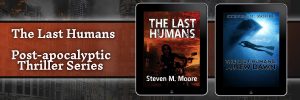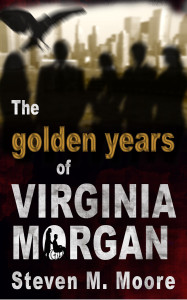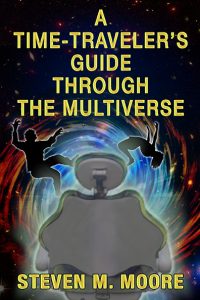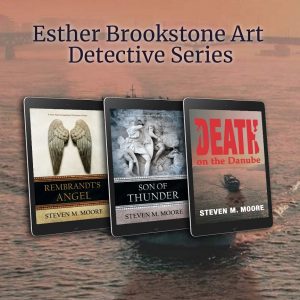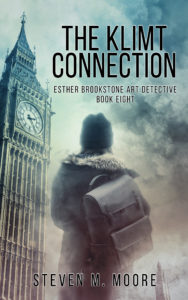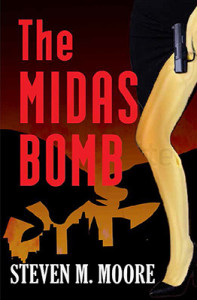China…
May 18th, 2022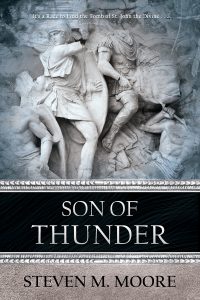 While I’ve never been to many places you’ll travel to in my novels—the English woman Esther Broookstone travels to Turkey in Son of Thunder, for example—I’ve avoided autocratic states like the plague (China makes a habit of producing real ones). Although I speak some Russian, I never had any desire to visit the USSR (when that language was most fresh in my mind—along with Esther, East Berlin was as far as I got), and Putin’s paradise always seemed less attractive than the USSR. From Mao to Xi, I had much less desire to visit Communist China because the problem of distance, language, and opportunity were added to the above.
While I’ve never been to many places you’ll travel to in my novels—the English woman Esther Broookstone travels to Turkey in Son of Thunder, for example—I’ve avoided autocratic states like the plague (China makes a habit of producing real ones). Although I speak some Russian, I never had any desire to visit the USSR (when that language was most fresh in my mind—along with Esther, East Berlin was as far as I got), and Putin’s paradise always seemed less attractive than the USSR. From Mao to Xi, I had much less desire to visit Communist China because the problem of distance, language, and opportunity were added to the above.
If you’ve read enough of my novels, though, you’ll know that some of them take place in China. Mary Jo Melendez goes there in Goin’ the Extra Mile (nice segue, “goes” to “goin,” right?), followed by the MECHs (“mechanically enhanced cybernetic humans”), who try to return the favor of saving her. (That novel, along with the first two in the “Mary Jo Melendez Mysteries” series, are now on sale now at Smashwords for $0.99—in the first one, Muddlin’ Through, an extreme travel story, she also visits both Russia and Ukraine as she and the MECHs flee Moscow and arrive in Poland). My search for background material while writing Goin’ went beyond my usual internet trawling (which often includes travel websites and Google Maps). Two other novels helped me in that search.
 The most important book was The First Excellence by Donna Carrick. Another was Ludlum’s third Bourne novel (which had nothing to do with the third Matt Damon movie except for the title). Both novels, but especially the first, gave me a peek inside China that few Westerners can have, even if they take a state-organized tour to ooh and aah about the Great Wall. (This peek inside is probably dated considering when the books were published, but China has only become worse under Xi, even without considering Covid.)
The most important book was The First Excellence by Donna Carrick. Another was Ludlum’s third Bourne novel (which had nothing to do with the third Matt Damon movie except for the title). Both novels, but especially the first, gave me a peek inside China that few Westerners can have, even if they take a state-organized tour to ooh and aah about the Great Wall. (This peek inside is probably dated considering when the books were published, but China has only become worse under Xi, even without considering Covid.)
You might not care about my searches to provide realism for my settings, but hopefully this post helps explain why I do this: I believe that readers can enjoy their travels to places like China, England, Korea, Russia, Turkey, and Ukraine when reading a novel. Other authors and I are those readers’ travel guides. Other readers, perhaps you, and most certainly I can enjoy trips around the world and to the stars without ever leaving our comfy armchairs, and we all, readers and authors alike, find more variety and get more enjoyment than any streaming video or other Hollywood drama can provide.
***
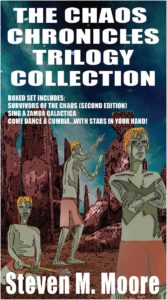 Comments are always welcome. (Please follow the rules found on the “Join the Conversation” web page. If you don’t, you comment will go into the spam folder.)
Comments are always welcome. (Please follow the rules found on the “Join the Conversation” web page. If you don’t, you comment will go into the spam folder.)
$0.99 cent sale! The “Mary Jo Melendez Mysteries” series and the “Chaos Chronicles Trilogy” are now both on sale at Smashwords. The first series contains the mystery/thriller novels Muddlin’ Through (QS68B), Silicon Slummin’…and Just Gettin’ By (SH53M), and Goin’ the Extra Mile (VX88P). The second contains Survivors of the Chaos, Sing a Zamba Galactica, and Come Dance a Cumbia…with Stars in Your Hand! (all three novels are contained in an ebook bundle, GF69F). All four ebooks are only $0.99 each. (If the promo codes don’t appear, you see them here and can use them to get the sale price.) Enjoy!
At PubProgressive.com tomorrow: “Five Old Men Taking Away Rights!”
Around the world and to the stars! In libris libertas!

